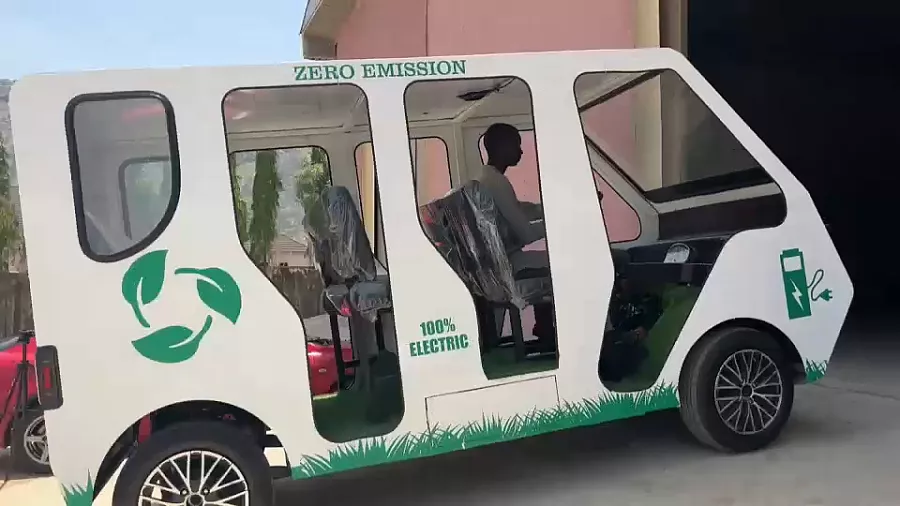In his workshop in Borno state, 31-year-old businessman Mustapha Abubakar Gajibo transformed first gasoline-powered minibuses into solar-powered electric vehicles (EVs).

In his workshop in Borno state, 31-year-old businessman Mustapha Abubakar Gajibo transformed first gasoline-powered minibuses into solar-powered electric vehicles (EVs).
In his brand-new workshop in Abuja, the federal capital, he has since begun full vehicle designing and manufacturing.
The high cost of living and environmental concerns were two of the main issues Abubaker aimed to address.
“Everyone knows how the prices of fuel go up every day, as well as the prices of transportation, and the damage caused by other fossil powered vehicles to our environment… so I went into electric vehicle to solve all those problems,” he says.
The young entrepreneur left school to pursue his vision of solar-powered EVs. He subsequently launched Phoenix Renewable Energy. He started producing electric vehicles in 2017. Even though he steadily rose in stature and experience, he still had to overcome obstacles like funding and material sourcing.
He envisions the introduction of more electric buses throughout the world. Speaking to local media, he claimed that people from “Ghana, Uganda, Kenya, Senegal, and Guinea Bissau” had contacted his company about their interest in his project.
[There is a] “model of our electric vehicle, designed for short-range, compact mass transit. This bus has seven seats, and it was entirely created and manufactured locally. It has a battery swapping option that reduces charging time and has a range of 210 kilometres on a single charge.”
Nigeria, one of the top producers of crude oil in Africa, has sporadic electricity availability, but Gajibo is unfazed.
His achievement allowed him to present a new perspective on Borno state, which has endured decades of insurgency at the hands of Boko Haram fighters and is located close to the Chadian border.
A vehicle that uses one or more electric motors for propulsion is referred to as an electric vehicle (EV). It can be driven autonomously by a battery, a collector system, or electricity from extravehicular sources (sometimes charged by solar panels, or by converting fuel to electricity using fuel cells or a generator).